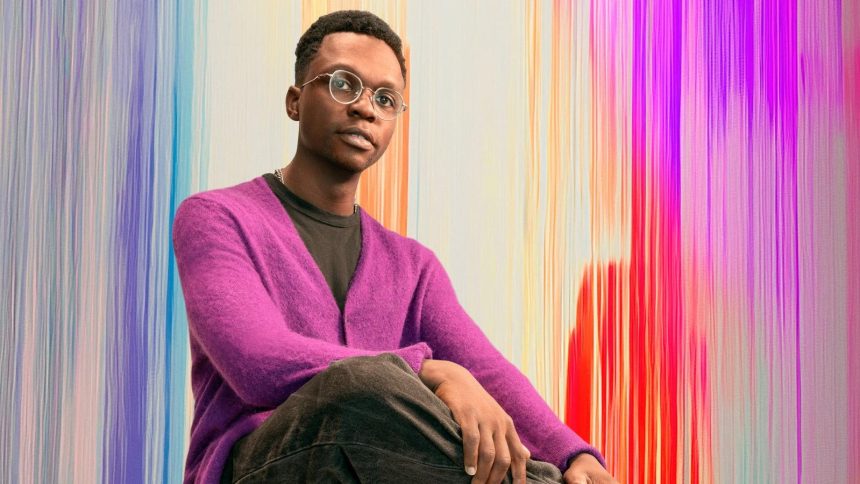In the ever-evolving landscape of technology and innovation, a new generation of young entrepreneurs is making significant strides in creating a more sustainable and high-tech future. Among them is Jordan Taylor, 29, who left a position at Nvidia to partner with his childhood friend Kaelan Richards in launching Vizcom. This company focuses on developing AI-driven industrial design tools and has successfully raised $25 million from notable investors, catering to prominent clients like Ford and New Balance. For Taylor, this venture is not merely about building a company; it’s about addressing pressing problems in the industry, echoing a sentiment shared by many of today’s disruptors.
The influence of artificial intelligence is prevalent among the young innovators featured in Forbes’ 30 Under 30 list for Manufacturing & Industry. Entrepreneurs like Dylan Conway and Jim Zhu, both 27, are reshaping the manufacturing sector with their startup, Squint, which designs software aimed at enhancing machinery training and automating data entry for established corporations like Michelin and Siemens. AI serves as a pivotal tool in their quest to boost efficiency in operations across various industries. Meanwhile, Samuel Lam, at 29, is harnessing AI to streamline the construction process with his company PermitFlow, which has also garnered substantial funding. By focusing on digitizing and accelerating the permit process, Lam’s startup represents a significant advancement in reducing the expenses and duration associated with construction.
A critical theme emerging from the new generation of entrepreneurs is the urgency to tackle issues related to climate change. At 28, Michelle Chao has co-founded Phoenix Tailings, a startup that innovatively recycles rare earth metals from waste without emitting carbon or creating toxic byproducts. This approach is essential for supporting the transition to clean energy technologies like electric vehicles. Other young innovators are also addressing environmental challenges. For instance, Diana Virgovicova, Kerem Topalismailoglu, and Shirley Zhong, rising voices in the pursuit of clean drinking water, have developed a novel material that promises to significantly enhance water purification. In a similar vein, Krish Mehta’s PHNX Materials is working to convert coal ash into a sustainable alternative for cement, a significant contributor to CO2 emissions. This concerted effort highlights the pressing need for sustainable innovations that mitigate environmental damage.
The aerospace sector, too, has witnessed a surge of youthful ambition. Startups like General Galactic, co-founded by Luke Neise and Halen Mattison, are utilizing aerospace technology to create renewable energy solutions, specifically transforming carbon dioxide waste into sustainable fuels. Furthermore, Alexander Taylor’s Orb Aerospace seeks to build autonomous aviation solutions in regions impacted by natural disasters or conflicts, showcasing the profound potential of aerial technology to address unique challenges. Meanwhile, Blake Herren and Ryan Cowdrey are making waves with Raven Space Systems, focusing on 3D printing aerospace-grade components for spacecraft. This trend reflects a broader industry shift towards using innovative technologies to solve critical issues while promoting sustainable development.
The realm of robotics is another area where young entrepreneurs are making an indelible mark. Founders like Max Cao and Lars Berscheid at Jacobi Robotics are designing faster, more intuitive robotic arms, crucial for enhancing manufacturing capabilities. Pivot Robotics, led by Siddharth Girdhar and Vignesh Rajmohan, is also leveraging robotics to automate labor-intensive, hazardous tasks, ensuring higher safety standards in work environments. New York City’s Adagy Robotics, founded by Rosalind Shinkle and Kathleen Brandes, is innovating by utilizing AI to enhance the operational efficiency of robots. Additionally, Charlie Wu’s Orchard Robotics exemplifies the application of advanced technology in agriculture, enabling growers to utilize computer vision software for better crop management. Collectively, these ventures signify a pivotal shift towards automation, improving not only efficiency but also safety across various industries.
The selection process for this year’s Forbes 30 Under 30 in Manufacturing & Industry was thorough and rigorous. The Forbes editorial team sifted through numerous nominations from both public submissions and independent reports, aiming to identify individuals under 30 who had never featured on a previous list in North America, Europe, or Asia. The finalists were then reviewed by expert judges, including Diane Hendricks and Amit Chaturvedy, who played pivotal roles in determining the ultimate honorees. This collaborative evaluation underscores the magazine’s commitment to highlighting the innovative spirit characterizing these young disruptors, whose work promises to redefine traditional markets and industries.
As we reflect on the profiles of these young innovators, it is clear that they are not just creators of technology; they are architects of a more sustainable future. Through their combined efforts in addressing challenges in manufacturing, robotics, agriculture, and climate technology, they embody a generation committed to problem-solving and environmental stewardship. Each entrepreneur carries a unique vision and mission, ultimately contributing to a high-tech landscape that seeks to harmonize industrial growth with environmental sustainability. As they continue to develop groundbreaking solutions, these young leaders inspire a hopeful outlook on the future of technology and its potential to create lasting change in our world.



